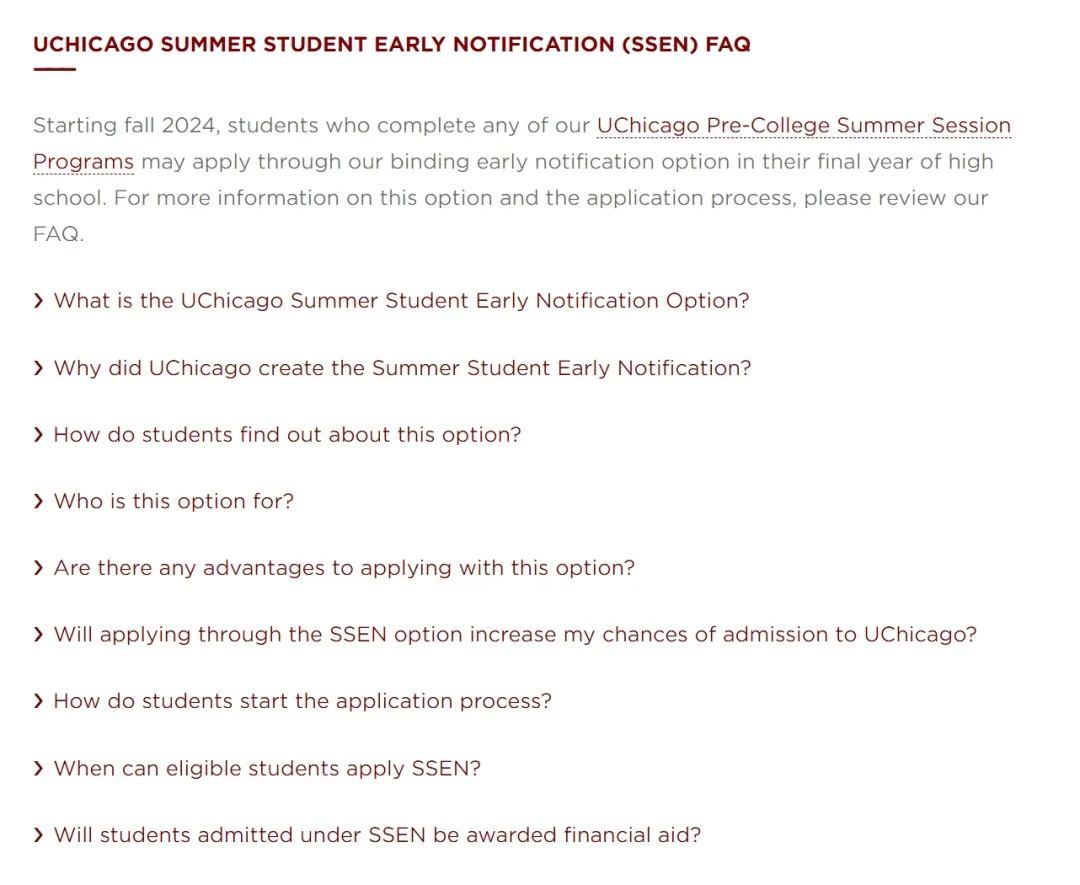每年英美顶尖大学放榜,关于“什么样的孩子才能读藤校”这类的问题,还是会引发很多讨论与思考。哈佛大学的校报《深红》(thecrimson),最近选出一些哈佛录取学生的优秀文书,作为范例展示,并给出点评。《看教育》也从中选出三篇不同方向申请的文书,以双语方式分享给读者。文书只是载体,从文书中体现出来的思考能力与情感表达,是其中非常值得一看的内核。
范例一:如鱼离水
@Michelle如鱼离水,一个成语,指的是一个人处于一个不自然的环境中;完全不适应。十岁时,父亲告诉我我们要搬到一个叫“Eely-noise”的地方。屏幕上的蓝光闪烁着,他通过滑动谷歌地球跨过6000英里的水域寻找我们的新家。
滑动,滑动,再滑动,它出现了:伊利诺伊州,这个州的名字我后来才知道。搬到美国就像从淡水进入盐水。不仅我的妈妈抱怨美国食物太咸,我也无助地被困在语言的“河口”,被时态、冠词和同音异义词的“浪潮”不断冲击。这种情境下,我发展出一种强烈而令人窒息的渴望,现在我才意识到这是我的声音和自我表达。
因为我唯一的英语背景是“Konglish”——韩语和英语的不健康混合体——以及我从《海绵宝宝》中学到的零碎短语。所以,当我走进美国的第一堂课时,我意识到了情况的严重性:我不得不借助笨拙的手势,或者我委婉称之为肢体语言,来传达最简单的信息。学校的生活变成了一个无尽的猜谜游戏。
在令人眩晕的元音和音素的海洋中,唯一有意义的是图片和图表。必然地,我很快对生物学产生了兴趣,因为它的教科书图文比例最高。尽管我不能理解所有像蚂蚁一样的说明文字,但丰富多彩的图表足以吸引我的注意力:绿色球体的食糜沿着消化道滚下,ATP合酶的转子像水车一样旋转。生物学以其对英语语言学习者友好的方式吸引着我。
后来我在生物学中了解到,当淡水鱼进入盐水中时,它进行会渗透调节——多喝水,少排尿。这正适用于描述我曾经的学校生活,在学校我不断地喝水来填补尴尬的沉默并润滑我的舌头以形成更好的元音。这个习惯却反过来成为了英语口语和膀胱的双重控制考验:因为担心如何提问,我不断地错过上厕所的时机。
我唯一能够表达自己的方式是通过我的手指,在德彪西的乐谱之间,在我的铅笔尖下。为了满足我的自我表达和交流需求,我学习了古典音乐、视觉艺术,后来还有创意写作。直到今天,我永远不会忘记当我演绎协奏曲、完成雕塑、以此找到我无法发音的美丽词汇时那种难以言喻的兴奋。如果生物学帮助我理解,那么是艺术帮助我被理解。
艺术和生物学都具有人性、同情心,甚至是救赎性。虽然它们对我来说是帮助我适应英语和新家的工具,但它们连接和治愈人们的力量远不止我所举的例子。
在大学及以后,我想通过投身科学研究、参加义演音乐会或简单地分享艺术之美来回馈社会。有时候,语言会让我感到难以把控。但当我知道有东西超越了语言,这让我有了根基和灵感。最终我学会了英语,但我仍然以同样或许普遍的紧迫性和真诚追求生物学和艺术:去理解和被理解。
多年来,我已经开始承认并喜爱我内心的那条鱼,那个困惑、结巴和思乡的ELL孩子将永远在我内心共存。我原谅了英语,因为它每天都赋予了我新的热情,尽管我还是不能正确发音“rural”。现在,当我看到和我过去一样喘着气寻找家乡水的孩子时,别担心,我想告诉他们。
你会找到你的“水”。
点评:Michelle的散文为读者提供了一段生动而诙谐的旅程,通过“如鱼离水”的成语,巧妙地将他们对生物学和艺术的热情与他们逐渐掌握英语的斗争联系起来。
Michelle以坦率而经常幽默的方式描述了日常生活中的语言挑战,从最初依靠“笨拙的手势”表示想去洗手间,到在找到新的美丽的表达词汇时“难以言喻的兴奋”,展示了Michelle最终成长为一个能够完全掌握英语的作家。
Michelle对音乐、艺术到生物学的多样热情在这篇散文中得到了充分展示,但最令人印象深刻的是Michelle对适应美国生活和文化过程的细腻和内省的记录。
显然,Michelle真心热爱写作,喜欢找到合适的词汇来表达他们的想法,展示了他们的坚韧和对学习的喜爱。Michelle作为一个作家和艺术家成长的真诚热情贯穿了整篇散文,带有温暖和幽默,感染力十足。
以下是英文原文——
@Michelle
Fish Out of Water.idiom. a person who is in an unnatural environment; completely out of place.When I was ten, my dad told me we were moving to somewhere called "Eely-noise." The screen flashed blue as he scrolled through 6000 miles of water on Google Earth to find our new home. Swipe, swipe, swipe, and there it was: Illinois, as I later learned.Moving to America was like going from freshwater into saltwater.
Not only did my mom complain that American food was too salty, but I was helplessly caught in an estuary of languages, swept by daunting tides of tenses, articles, and homonyms. It’s not a surprise that I developed an intense, breathless kind of thirst for what I now realize is my voice and self-expression.
This made sense because the only background I had in English was “Konglish”--an unhealthy hybrid of Korean and English--and broken phrases I picked up from SpongeBob. As soon as I stepped into my first class in America, I realized the gravity of the situation: I had to resort to clumsy pantomimes, or what I euphemistically called body language, to convey the simplest messages. School became an unending game of pictionary.
Amid the dizzying pool of vowels and phonemes and idioms (why does spilling beans end friendships?), the only thing that made sense was pictures and diagrams. Necessarily, I soon became interested in biology as its textbook had the highest picture-to-text ratio.
Although I didn’t understand all the ant-like captions, the colorful diagrams were enough to catch my illiterate attention: a green ball of chyme rolling down the digestive tract, the rotor of the ATP synthase spinning like a waterwheel. Biology drew me with its ELL-friendliness and never let go.I later learned in biology that when a freshwater fish goes in saltwater, it osmoregulates--it drinks a lot of water and urinates less.
This used to hold true for my school day, when I constantly chugged water to fill awkward silences and lubricate my tongue to form better vowels. This habit in turn became a test of English-speaking and bladder control: I constantly missed the timing to go to the bathroom by worrying about how to ask.
The only times I could express myself were through my fingers, between the pages of Debussy and under my pencil tip. To fulfill my need for self-expression and communication, I took up classical music, visual art, and later, creative writing. To this day, I will never forget the ineffable excitement when I delivered a concerto, finished a sculpture, and found beautiful words that I could not pronounce.
If biology helped me understand, art helped me be understood.There’s something human, empathetic, even redemptive about both art and biology. While they helped me reconcile with English and my new home, their power to connect and heal people is much bigger than my example alone.
In college and beyond, I want to pay them forward, whether by dedicating myself to scientific research, performing in benefit concerts, or simply sharing the beauty of the arts. Sometimes, language feels slippery like fish on my tongue. But knowing that there are things that transcend language grounds and inspires me.
English seeped into my tongue eventually, but I still pursue biology and arts with the same, perhaps universal, exigency and sincerity: to understand and to be understood.Over the years, I have come to acknowledge and adore my inner fish, that confused, tongue-twisted and home-sick ELL kid from the other side of the world, which will forever coexist within me.
And I’ve forgiven English, although I still can’t pronounce words like “rural,” because it gifted me with new passions to look forward to every day. Now, when I see kids with the same breathless look that I used to have gasping for home water, Don’t worry, I want to tell them.You’ll find your water.
范例二:饼干赌博
@Daniella每次我烘焙饼干,它们出炉的样子都不尽相同。黄油、糖、鸡蛋、面粉——我精确测量,用力搅拌,然后将烤箱设定在375°F。食谱是例行公事,却绝不多余。一场暴风雪让我只能呆在室内,除了一个搅拌器和满满一储藏室的基础食材外,我无所事事。我先是做了第一炉饼干:一盘热气腾腾的巧克力块饼干,它们入口即化的小碎片安慰了我被困在雪中的心灵。然而,如此完美的描述掩盖了我混乱的过程。实际上,我的方法是随意而随意的,那次的饼干是一种美味的偶然,从此无法复制。
我之后制作的每一批饼干都是一场赌博。饼干会不会变扁,变得脆?或者保持圆顶形状,湿润?我是一个糟糕的烘焙师,还是它们本质上就变化无常?即使有一本满是建议的食谱书,我也永远无法找出我的错误所在。饼干反复无常,脾气暴躁。烘焙它们就像是在鸡蛋壳上行走——我有一个空的鸡蛋盒证明这一点。
也许,新手的运气一直都是秘密成分。然而,好奇心让我不断翻到食谱书的同一页。我沉迷于完善饼干的制作过程,不是因为看到食材结合成面糊的机械满足感,而是因为这简单过程中的奇迹。它的不一致性令人着迷。毕竟,这是一个严格的食谱,相同的食材以相同的排列组合。怎么可能这样正统的步骤产生如此激进、不可预测的结果?
化学解释了一些烘焙过程中出现的异常。例如,仅仅多出半撮的小苏打就能对面团的气泡产生惊人的影响。厨房成了我的实验室:我像科学家一样记录每一次尝试;我买了一个秤以进行更精确的测量;我还从图书馆借了《食物与烹饪:厨房的科学与传说》一书。但都无济于事——变量拒绝以任何形式达到平衡。
然后我像钢琴家一样解决问题,采纳我的老师在我乐谱边缘写的建议,并将其倾注到混合碗中。键盘上有88个音调,食谱中有十几种食材。要创造出狂想曲般的甜点,我需要理解所有的旋律和和声线条以及它们是如何相互补充的。我想象着食谱以意大利文书写,巧克力碎片像是在厚重的慢板介质中的快速断音。
但我的手指总是在每次演奏的尾声时绊倒,饼干的细节变成了一团糟的声响。我搅拌、筛分、再搅拌,我不断地预热烤箱,但每一批都有其缺陷,要么是太甜,要么边缘烧焦,呈颗粒状,或者没烤熟。尽管饼干是出于被困雪天的无聊而生,但它们不可预测的本质继续吸引着我。
每次我的努力产生不完美的结果时,我都培养了再次尝试的韧性。下周我会带着新鲜的围裙回来,准备再次尝试。我对每次尝试的古怪之处都着迷。仅仅混合和吃是不够的——我必须理解。
我的创造性视角让这项任务保持了吸引力。尽管我的过程重复,我找到了活跃食谱的新角度。在大学及以后,将会有像烘焙饼干这样的事情,看起来如此不变,它们有可能把自己变成家庭主妇的苦差事。
但从我在厨房的时间里,我学会了如何更深入地探究我任务的机制,将音乐带入单调,并将工作变成娱乐。不管未来我的饼干如何破碎,我都会带着好奇心、创造力和真诚来对待我的工作。
点评:Daniella的散文可爱、有趣且有效。它真诚而自然地展示了她的不同面貌,她如何处理问题,她的价值观是什么。主题的平凡非常适合她的结论和洞见。她运用幽默,展现了韧性、创造力、知识好奇心以及对哲学思考的真实倾向。她的“声音”很自信,用词富有创意,每个段落的词汇巧妙地反映了她的不同方面(科学家“记录了每一次尝试”;音乐家试图创造“狂想曲般的甜点”)。
详细描述Daniella制作饼干过程的几个段落也非常有力。她停留在感官细节上,这些细节产生共鸣(你可以闻到、尝到和感受到那些巧克力块饼干),而不是在文章中塞满她各种证书或经历的提及。这种结构大胆而谦逊。它让Daniella向读者展示了她如何思考、如何解决问题、如何坚持不懈,而不是告诉读者。这是非常有力的。
这篇散文字数为618字(标准限制是650字)。Daniella本可以用额外的字数增加第3段的内容:她是否在其他地方也经历过类似的过程导致不同的结果——也许在音乐表演中?在接下来的段落中,她可能还加一句话,考虑大气条件对烘焙的潜在影响,以及更广泛/比喻性地考虑。
以下是英文原文——
@Daniella
Each time I bake cookies, they come out differently. Butter, sugar, eggs, flour — I measure with precision, stir with vigor, then set the oven to 375°F. The recipe is routine, yet hardly redundant.After a blizzard left me stranded indoors with nothing but a whisk and a pantry full of the fundamentals, I made my first batch: a tray of piping hot chocolate chunkers whose melt-in-the-mouth morsels comforted my snowed-in soul. Such a flawless description, however, belies my messy process. In reality, my method was haphazard and carefree, the cookies a delicious fortuity that has since been impossible to replicate.Each subsequent batch I make is a gamble.
Will the cookies flatten and come out crispy? Stay bulbous and gooey? Am I a bad baker, or are they inherently capricious? Even with a recipe book full of suggestions, I can never place a finger on my mistake. The cookies are fickle and short-tempered. Baking them is like walking on eggshells — and I have an empty egg carton to prove it.
Perhaps beginner’s luck had been the secret ingredient all along.Yet, curiosity keeps me flipping to the same page in my recipe book. I became engrossed in perfecting the cookies not by the mechanical satisfaction of watching ingredients combine into batter, but by the chance to wonder at simplicity. The inconsistency is captivating. It is, after all, a strict recipe, identical ingredients combined in the same permutation.
How can such orthodox steps yield such radical, unpredictable results? Even with the most formulaic tasks, I am questioning the universe.Chemistry explains some of the anomaly. For instance, just a half-pinch extra of baking soda can have astounding ramifications on how the dough bubbles. The kitchen became my laboratory: I diaried each trial like a scientist; I bought a scale for more accurate measurements; I borrowed “On Food and Cooking: the Science and Lore of the Kitchen” from the library. But all to no avail — the variables refused to come together in any sort of equilibrium.I then approached the problem like a pianist, taking the advice my teacher wrote in the margins of my sheet music and pouring it into the mixing bowl. There are 88 pitches on a keyboard, and there are a dozen ingredients in the recipe.
To create a rhapsodic dessert, I needed to understand all of the melodic and harmonic lines and how they complemented one another. I imagined the recipe in Italian script, the chocolate chips as quick staccatos suspended in a thick adagio medium. But my fingers always stumbled at the coda of each performance, the details of the cookies turning to a hodgepodge of sound.I whisk, I sift, I stir, I pre-heat the oven again, but each batch has its flaws, either too sweet, burnt edges, grainy, or underdone.
Though the cookies were born of boredom, their erratic nature continues to fascinate me. Each time my efforts yield an imperfect result, I develop resilience to return the following week with a fresh apron, ready to try again. I am mesmerized by the quirks of each trial. It isn’t enough to just mix and eat — I must understand.My creative outlook has kept the task engaging.
Despite the repetition in my process, I find new angles that liven the recipe. In college and beyond, there will be things like baking cookies, endeavors that seem so unvaried they risk spoiling themselves to a housewife’s drudgery. But from my time in the kitchen, I have learned how to probe deeper into the mechanics of my tasks, to bring music into monotony, and to turn work into play. However the cookie crumbles in my future, I will approach my work with curiosity, creativity, and earnestness.
范例三:征服滑板场@Billy
当我在皮博迪滑板场的缓坡上来回骑行时,我看到我弟弟从半管的最高点飞驰而下,速度如光。我希望我也能做到,我想着,眼睛盯着高耸在我上方的巨大曲线。但我不敢向顶部进发。我继续坚持在我熟悉的常规坡道,不惜一切代价避免陡峭的坡度。
在我四年级前的那个夏天,每一周我和我弟弟都会去同一个滑板场,我会骑着我的小型BMX自行车到那个巨大的斜坡底部,准备“征服巨人”。起初太害怕了,我只能到达四分之一的高度,不敢再高。但每周,我都不断获得着更多的信心,并达到更高的高度。一半,三分之二,四分之三。直到最后,我鼓起足够的勇气完成最后的挑战。
弟弟的欢呼声在我耳边回响,似乎那混凝土块在呼唤我的名字,吸引我越来越近,直到我再也无法抗拒它的恳求。我把自行车推上楼梯,走向陡峭的落差。我的手开始出汗,我的腿开始颤抖,当我向边缘移动时,面对厄运。最后在斜坡的边缘,我短暂停顿,深呼吸,然后向前移动足以将自己加速下坡。我无法抑制我的兴奋,当我的“哇!”在公园里回荡。我终于骑下了最高的坡道!
我迄今为止的人生中,我喜欢有计划并掌控一切。在团队合作时,我确保每个人都清楚地知道他们将完成项目的哪个部分。我在计划表中安排所有的作业,所以我永远不会错过截止日期。每晚,我都会概述第二天的日程安排,以便我知道要参加哪些会议、体育赛事和其他活动。当我夏天访问纽约市时,我准备了一份详细的行程表。很少有一天我不知道我要做什么,但有时候我的计划和一天真正的发展并不相符。
多年来,我已经学会在情况出现意想不到的转变时适应,并且,就像在滑板场的那次一样,我已经能够更频繁地走出我的舒适区。事情不完全按计划进行并不是世界末日;往往突然的变化和新的经历会带来更多的乐趣和兴趣。
尽管我非常喜欢严格的行程安排,但我最好的一些夜晚始于和我的朋友们跳上车,选择一个方向,然后随风而行。尽管我尽力计划我的一天,但不可预见的事件几乎是不可避免的。虽然这可能带来一些压力,但匆忙解决问题不仅是一项基本技能,也可以是一个有趣的挑战。
我无法想象一个完全有组织的生活,没有一点不确定性。意外的情况肯定会发生,充分利用它们是我生活中最喜欢的部分之一。无论我多么喜欢有计划,我的灵活性和愿意走出我的舒适区是我拥有并一直引以为傲的东西。
点评:Billy征服皮博迪滑板场巨大坡道的故事不仅仅是通过逐步暴露风险来扩大他的舒适区。要真正理解这个插曲如何提升他的候选资格,必须考虑其更大的背景。Billy承认自己是一个超级有组织的行程安排者,一直都喜欢掌控一切。
一个四年级Billy骑着BMX自行车下坡的形象与他广泛的课外领导和雄心勃勃的环境工程抱负所描绘的形象完全相反。
Billy的散文没有明确地说,但向我们展示了他的自由放养的童年夏天现在与他严格超计划的高中岁月有多大的不同。尽管这感觉像是很久以前的事,但Billy并没有忘记一点点走向边缘,面对厄运,并且愿意放手。
事实上,每当Billy按下目标导向追求的暂停按钮,抛开谨慎,和朋友们开始一次即兴的公路旅行冒险时,记忆就像八年前一样清晰。Billy的半管故事平衡了一个可能在没有它的情况下显得保守或不灵活的候选资格,展示了对变得过于依赖游戏计划的机会成本的自我意识。以下是英文原文——
@Billy
As I rode up and down the gentle slopes of the Peabody skatepark, I watched my younger brother race down from the highest point on the halfpipe and fly past me at the speed of light. I wish I could do that, I thought, eyeing the enormous curve that towered over me. But I didn’t dare make my way up to the top.
Instead, I stuck with the routine I was comfortable with, avoiding the steep inclines at all costs.Each week during the summer before my fourth grade year, my brother and I would visit that same skatepark, and I would take my mini-BMX bike to the bottom of that monstrous ramp, ready to attack the giant. I started off low reaching only a quarter of the way up at first, too scared to go any higher. But each week, I gained more confidence and kept reaching greater heights.
Halfway there, two-thirds, three quarters. Until finally, I mustered up enough courage to complete my final challenge.With my brother’s shouts of joy ringing in my ears, it seemed as though the concrete mass was calling my name, drawing me closer and closer, until I couldn’t resist its pleading any further.
I walked my bike up the stairs and approached the steep drop off. My hands started to sweat and my legs began to shake as I inched toward the edge, staring in the face of doom. Finally at the lip of the ramp, I paused briefly, took a deep breath, and moved forward just enough to send myself speeding downwards.
I couldn’t contain my excitement as my, “Woooo!” echoed around the park. I had finally ridden down the tallest ramp!Throughout my life I have enjoyed having a plan and being in control. When working in a group, I make sure that everyone knows exactly which aspect of the project they will complete.
I organize all my homework in a planner so that I never miss a due date. Each night, I outline my schedule for the following day so that I know what meetings, sports events, and other activities I have to attend.
When I visited New York City over the summer, I prepared a detailed itinerary to follow. Rarely is there a day when I don’t have a general idea of what I’m going to do, but sometimes my plan doesn’t correlate with how the day truly plays out.
Over the years, I have learned to adapt when situations take an unexpected turn, and, similar to that time at the skatepark, I have been able to step out of my comfort zone more often. It isn’t the end of the world when things don’t go exactly as planned; often times, sudden changes and new experiences make for a more enjoyable and interesting time.
As much as I enjoy a strict itinerary, some of my best nights have begun by hopping in the car with my friends, picking a direction, and going wherever the wind takes us. As hard as I try to plan out my day, an unforeseen event is almost inevitable.
Although this can bring about some stress, scrambling around to figure things out is not only an essential skill, but can be a fun challenge, too.I can’t imagine a completely organized life without a little uncertainty.
Unexpected circumstances are bound to occur, and making the most of them is one of my favorite parts of life. Regardless of how much I love having a plan, my flexibility and willingness to step out of my comfort zone is something I have and will always take pride in.













